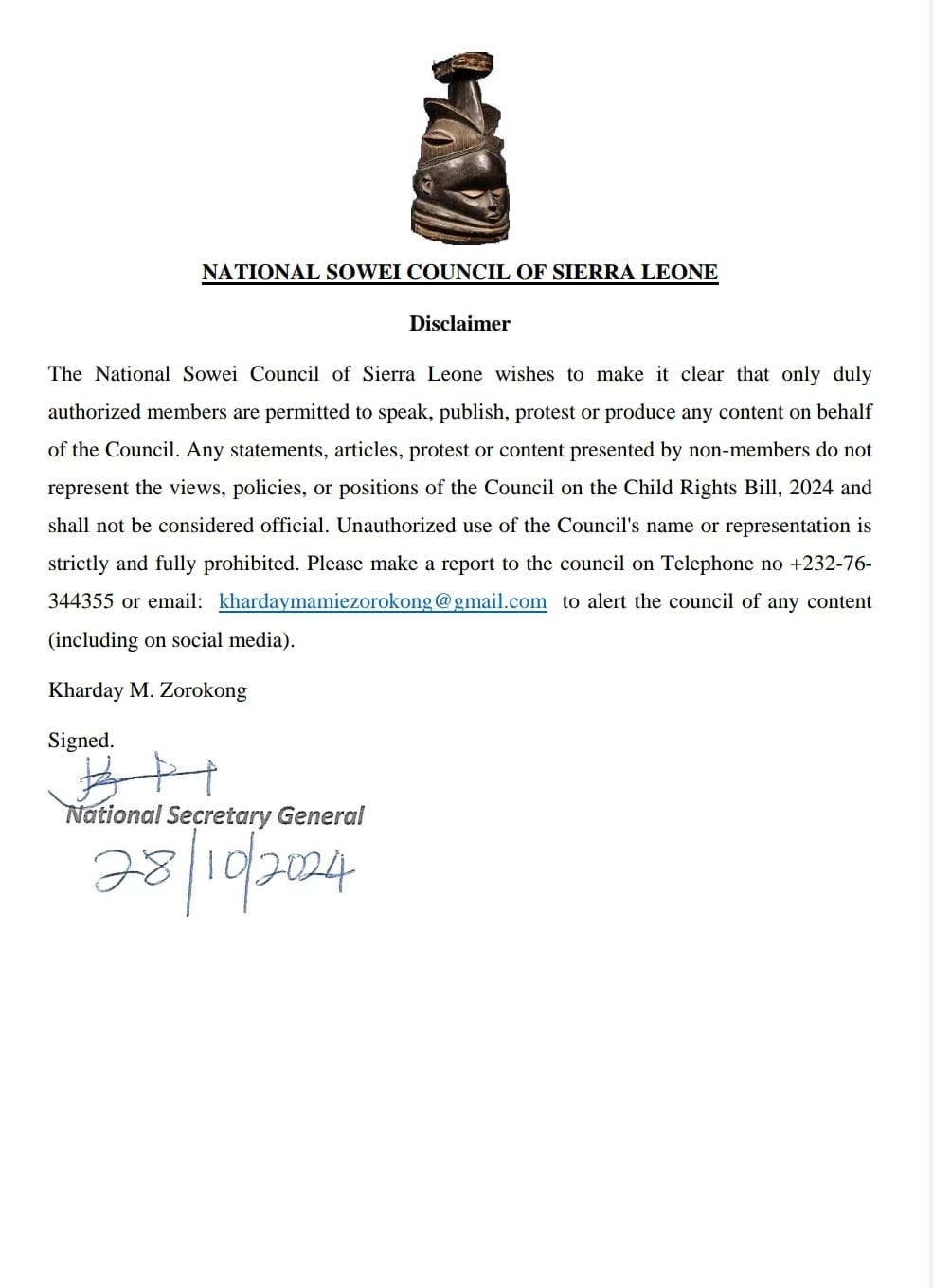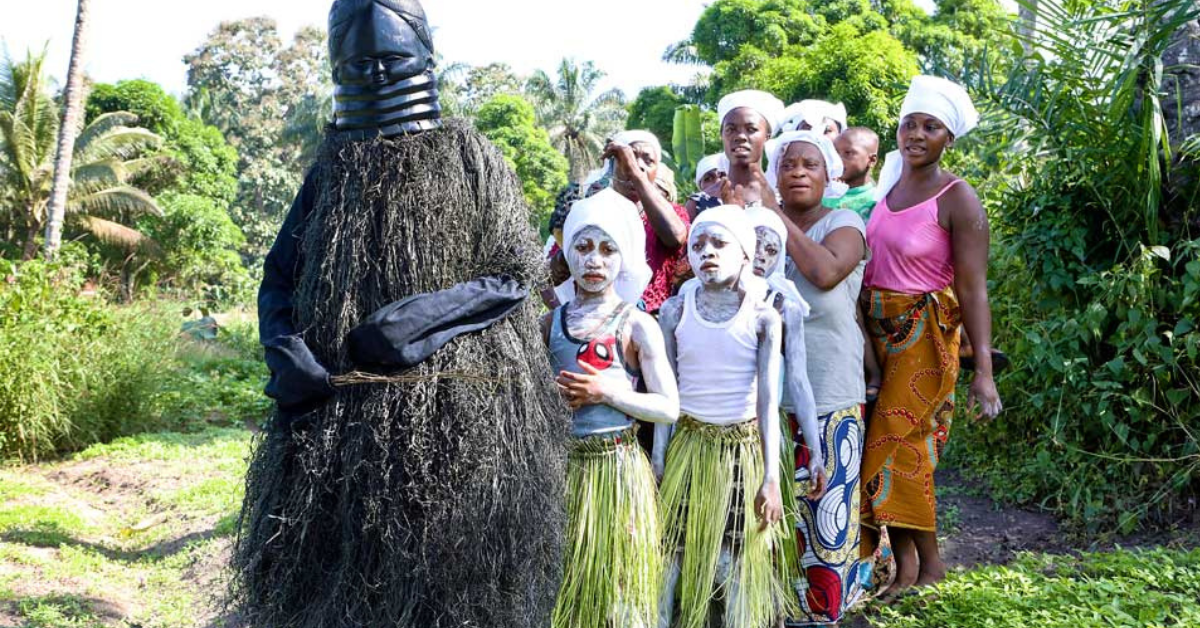As the Child Rights Bill 2024 makes its way through the Sierra Leonean Parliament, the National Sowei Council has issued a formal disclaimer to emphasize that only authorized members may speak or act on behalf of the Council regarding the bill, especially in matters related to female genital cutting (FGC).
The Council’s statement, signed by National Secretary General Kharaday M. Zorokong, warns that any statements or actions taken by unauthorized individuals do not represent the Council’s views or policies and that unauthorized use of the Council’s name is prohibited.
The disclaimer appears to respond to heightened tensions surrounding Section 25 of the bill, which proposes a nationwide prohibition on practices deemed harmful to children.
The legislation defines FGC as “the cutting or removal of a part of the female genitalia” and categorizes it as a “harmful practice” with potential for both physical and psychological harm. The bill aims to address practices rooted in gender discrimination and marginalization, including early marriage and child betrothal.
For many in Sierra Leone, the role of the Sowei—a cultural figure historically responsible for performing FGC within traditional initiation rites—has cultural significance.
FGC is regarded by some communities as an essential part of a young girl’s transition to womanhood. However, the practice has come under scrutiny from health professionals and human rights advocates who have highlighted the serious risks associated with FGC, including lasting physical and mental trauma.
The Council’s statement underscores its intent to control its narrative and position amid rising public debate over the bill. The Child Rights Bill 2024, if passed, would enforce protections against child marriage and FGC, reflecting growing global and national calls to end practices considered harmful to minors.
See attached disclaimer notice:













Honestly, I have never taken a look at the female genitalia of a woman that has joined the Bondo society during sex. I really do not care if part of it has been removed. As long as I can gain access/entrance, I am a happy man. What is all this fuss about?